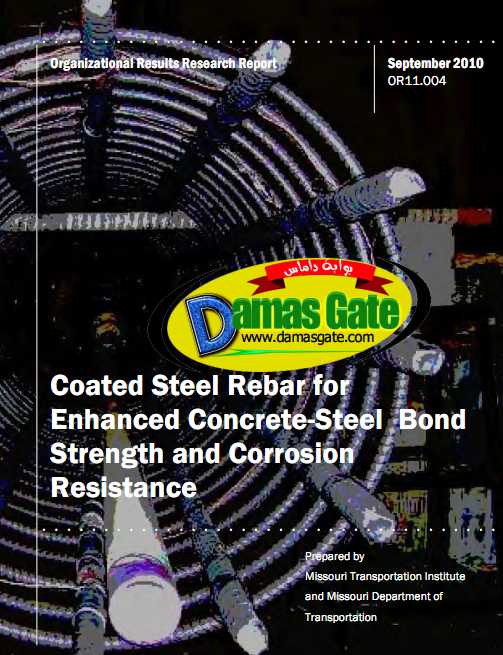Coated Steel Rebar for Enhanced Concrete-Steel Bond Strength and Corrosion Resistance
1. INTRODUCTION
Approximately $10B is spent annually to directly remediate corrosion problems with our nation’s bridges, and indirect costs push that annual expenditure up by a factor of ten [Hartt et al., 2004]. Epoxy coated rebar has been the most widely used method for corrosion protection. The epoxy coating is intended to isolate the steel from any corrosive environment associated with the service condition of the concrete, such as road salts, acids, or carbonation. However, under certain conditions, the epoxy coating can actually accelerate the corrosion of the steel [Sagues et al., 1994; Brown and Weyers, 2003]. The relatively weak physical bond between the epoxy and steel is not a sufficient barrier to attack by moisture. Furthermore, use of the epoxy coating reduces the concrete-steel bond strength, thus requiring longer development lengths for epoxy coated rebar [ACI, 2008]. Other types of rebar such as zbar, stainless steel, stainless steel clad, and fiberglass have been evaluated for reinforcement in RC bridge structures. Most of these alternative reinforcing systems do not form chemical bonds with the surrounding concrete matrix, and so offer no opportunity to enhance the overall strength of the RC structure.

Download
*